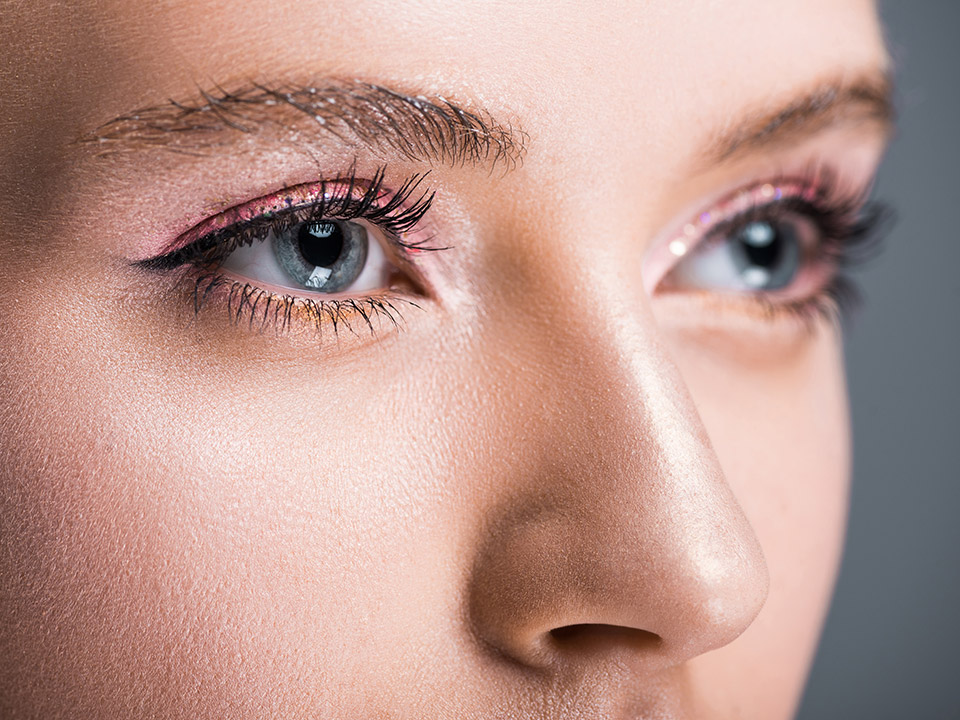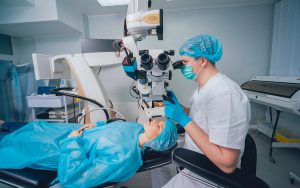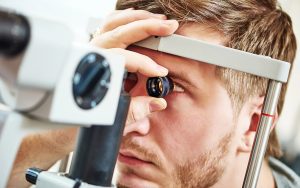What Are Eyebrows and Eyelashes For?

As humans evolve, our facial and body hair diminish over time. But eyelashes and eyebrows remain a core part of our features. You may think they are just for framing your face and making expressions, but there is much more to them.
Their primary job is to protect our eyes against contaminants and other hazards in the air.
So, How Do They Protect The Eyes?
Protective Function of The Eyelashes
While eyelashes look great, they are more than decorative elements. They help prevent dust, debris, and dirt in the air from getting into our eyes.
When you close your eyes, they create an impenetrable barrier, locking hazards out. Eyelashes are sensitive as well. They trigger a strong blinking reflex if touched by anything to prevent it from penetrating the eye. The blinking reflex also explains why keeping your eyes open while applying makeup or inserting a contact lens is challenging.
Eyelashes are the right length and thickness to keep dirt out of the eyes while keeping them moist. And because false eyelashes tend to throw this balance off, we do not recommend wearing them.
The eyelash glue can be irritating to the eye. Also, adding fake eyelashes can harm the normal functioning of the lashes, making dust exposure and dry eye more likely. Other people develop eye infections from them. Even more, you risk the permanent or temporary loss of eyelashes when you extend your lashes.
Protective Function of The Eyebrows
Although positioned away from the eyes, they also serve an important purpose. Eyebrows channel liquids like raindrops and sweat away from the eyes and down to the sides of the face.
Whether shower water, rain, or sweat, eyebrows significantly redirect liquids away from the eye tissue. Each hair, as well as the shape of the eyebrows, plays a role in enhancing this function.
In the same way, fake eyelashes impede the protective role of eyelashes, removing or plucking eyebrow hairs can hinder their functionality.
Why Do We Blink?
Picture yourself at a staring contest. It is challenging to keep your eyes wide open for longer due to the instinct to blink. So why do we blink?
Blinking is essential for eye lubrication and maintaining good eye health. It is a natural function that refreshes and cleans the eyes. Blinking releases a tear film that consists of mucus, oil, and water to keep the eyeball surface moist while whisking away particles of dirt and dust that could irritate the eye and affect vision.
Excessive tears and dirt particles are washed down via the tear ducts into the nasal passage, hence why you likely experience a running nose while crying– the nose and tear film are interconnected.
The tear film also supplies the eyes with sufficient oxygen. Blood vessels hardly reach the cornea; however, the film directly transmits oxygen. It also has enzymes to fight bacteria and prevent the eyes from infection.
Even though a typical adult blinks about 20 times per minute, some tasks can be so demanding that they interfere with the blinking rate. Delayed blinking is not good because it reduces the cleansing and refreshing function rate.
Studies show that if you stare intently at a screen or read a book, the rate of blinking drops- usually between 3 to 8 times every minute. After some time, this can lead to conditions like eye strain and dry eye.
What Causes Excessive Blinking?
While others experience delayed blinking, others blink more than they want. Several things could cause this. People experience excessive blinking when something overstimulates the blinking reflex.
Eyestrain
Excessive blinking can happen when you get tired, heavy eyes after being focused on one thing for long. Eyestrain can be due to several reasons:
- Spending too much time on your screens
- Reading for a long time
- Being in much brighter light
Eye Irritation
You will blink more than you anticipate if there is an irritation on the front layer of your eyes, including dry eyes, a scratch on the outer layer of the eye, inflammation of the eyelid or iris, and ingrown eyelash.
Physical and Mental Health Problems
Stress makes one sensitive to light and prone to eye strain. General health conditions that can cause intense blinking include fatigue, stress, and anxiety.
Neurological Conditions
Various neurological conditions may cause excessive blinking, including:
- Multiple sclerosis. It usually affects the CNS and exhibits other symptoms like balance, vision, and coordination problems.
- Wilson’s disease. Caused by excessive copper in the body. Deposits in the brain could result in various symptoms besides excessive blinking. It could be tremors, facial grimacing, or clumsiness.
Vision Issues
Common vision issues that lead to excessive blinking include:
- Presbyopia. Eye changes due to age that affect near vision like reading books, newspapers, and menus.
- Hyperopia. Being able to see distant objects clearly (farsightedness), but nearby ones appear blurry.
- Strabismus. Improper alignment of eyes.
- Myopia. Nearby objects appear clearer than distant objects (nearsightedness).
Blinking On Purpose
Children around the age of five especially exhibit this. They usually do it for attention or even as a game.
What Are The Treatment Options?
Usually, excessive blinking is not linked to severe health conditions. It may, therefore, disappear on its own. But if treatment is necessary, your eye doctor can prescribe various treatment options for your case.
They may recommend ointment, eye drops, or other medicines if your blinking is related to allergies, infection, inflammation, or injury. A patch might also heal your eye.
If you have ingrown eyelashes or something in your eye, the doctor can remove it. If it is a refractive error problem like farsightedness, glasses and contacts correct your vision. If your eyes need straightening, surgery will help. Also, your eye doctor can refer you to a specialist if your blinking is anxiety or stress-related.
If your eyes feel dry or fatigued after hours of staring at your screen or you have any other visual complications, book an appointment with us for the best, compassionate, and advanced eye care. If you notice anything strange with your eyelashes and eyebrows, give us a call.




